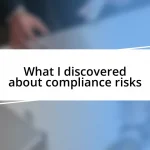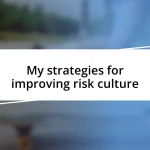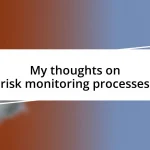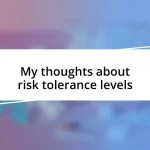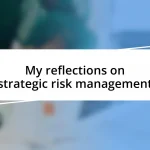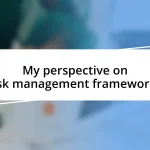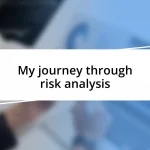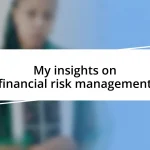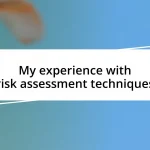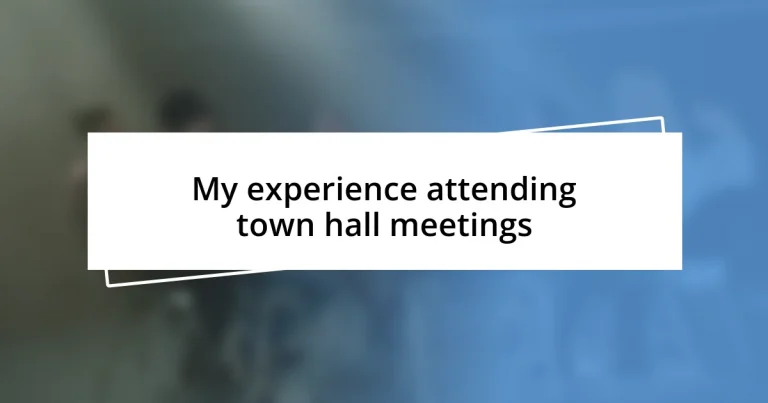Key takeaways:
- Town hall meetings foster community engagement, allowing residents to express concerns and shape local decisions through direct dialogue with officials.
- Preparation is essential for effective participation; understanding topics, being concise, and maintaining respect lead to productive discussions.
- Sharing personal stories during meetings creates connections and empathy, highlighting the importance of diverse perspectives in addressing community issues.
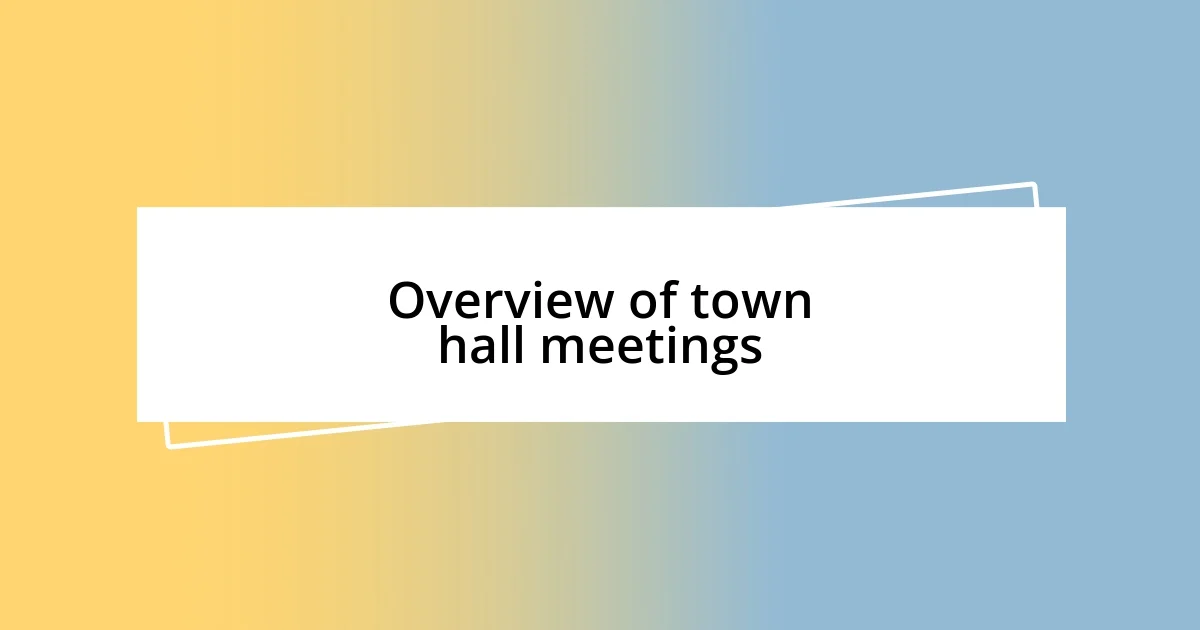
Overview of town hall meetings
Town hall meetings serve as a vital platform for community engagement, bringing together residents and local leaders to discuss pressing issues. I vividly remember my first meeting and the palpable energy in the room, where voices echoed hopes and concerns. It’s fascinating how a simple gathering can galvanize such a mix of emotions—anxiety, hope, frustration—don’t you think?
These meetings typically allow residents to express their opinions directly to elected officials, fostering a level of transparency that can feel lacking in everyday politics. I recall feeling invigorated when I stood up to voice my concern about a local park’s condition; it felt empowering to be heard among my neighbors. It makes me wonder, how often do we truly get a chance to shape the decisions that affect our daily lives?
Moreover, town hall meetings can reflect the community’s diverse perspectives, showcasing a rich tapestry of ideas and experiences. I was struck by how one person’s passionate plea for better public transportation sparked a series of thoughtful discussions about accessibility. Isn’t it amazing how one conversation can lead to a flurry of ideas that resonate with so many?
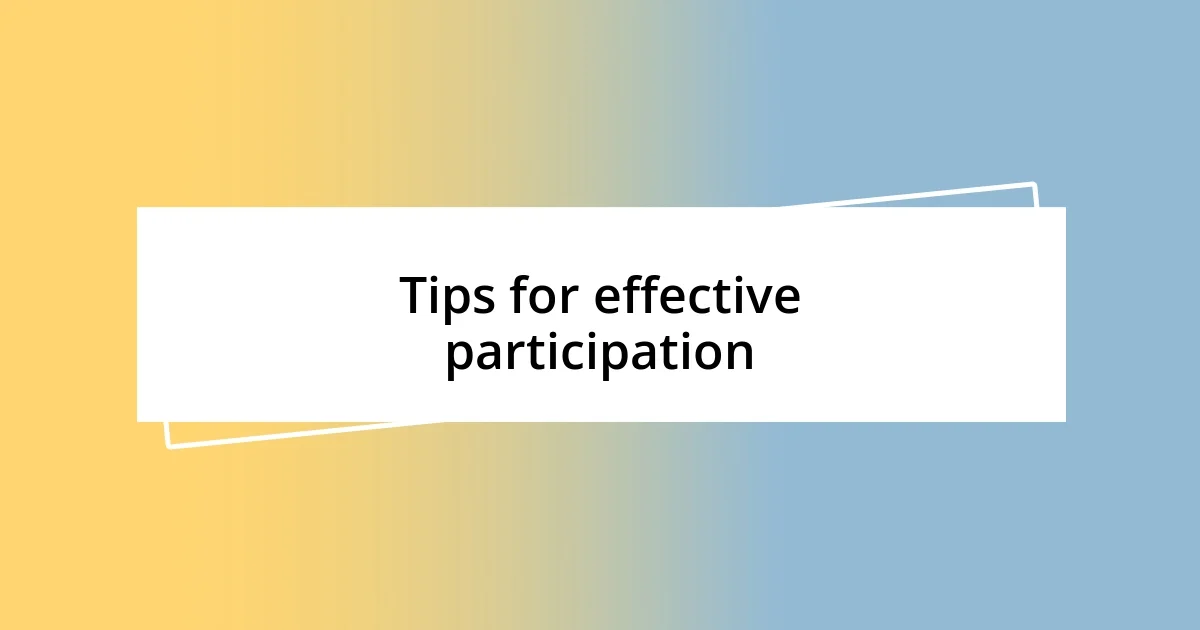
Tips for effective participation
To truly make your voice heard in a town hall meeting, preparation is key. I remember the first time I attended, I came in without a clear idea of what I wanted to say, and I left feeling somewhat lost. The next time, however, I took time to jot down my thoughts beforehand and felt confident as I stepped up to speak. It really does make a difference when you know what you want to communicate clearly.
Here are some tips for effective participation:
- Do your homework: Understand the topics up for discussion and gather relevant facts or data.
- Be concise: Keep your comments clear and to the point to maintain the audience’s attention.
- Listen actively: Pay attention to others’ views, which can guide your responses and foster a collaborative atmosphere.
- Stay respectful: Even when emotions run high, maintaining a respectful tone is crucial for constructive dialogue.
- Follow up: If you have further questions or concerns, don’t hesitate to reach out to officials after the meeting.
Engaging in town hall meetings can be a transformative experience when you connect with the community and navigate the dialogue effectively. I still remember when a resident shared a heart-wrenching story about local safety issues; it was a reminder of the power of sharing personal experiences to highlight broader concerns. Every contribution, big or small, holds the potential to spark significant change.
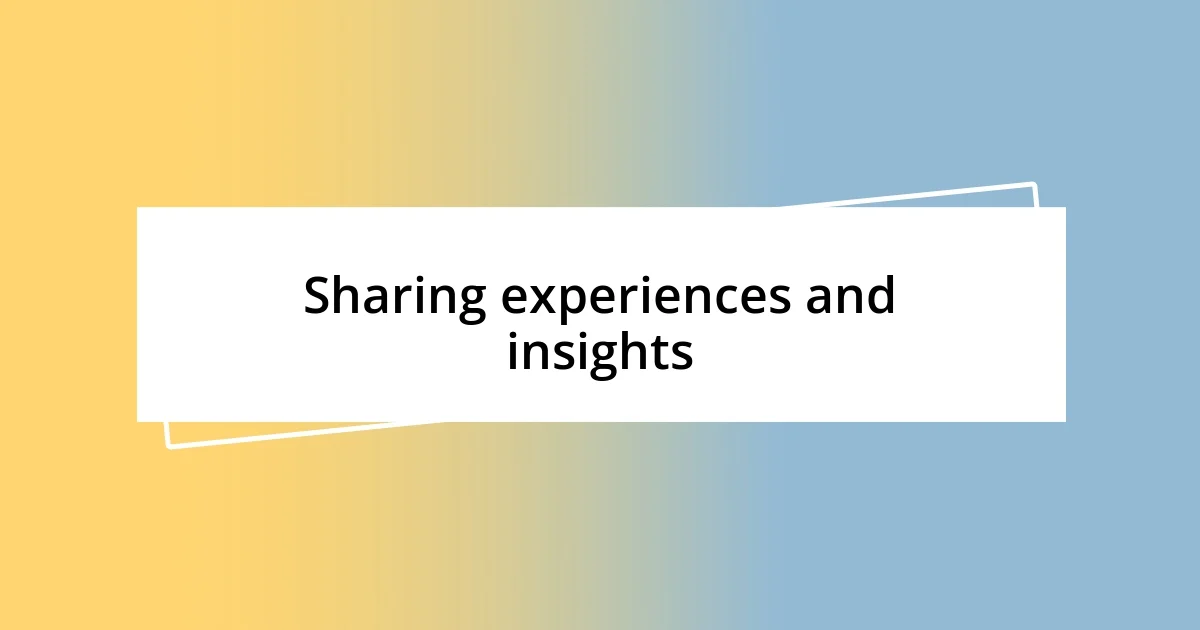
Sharing experiences and insights
Attending town hall meetings has always been a journey of discovery for me. I recall one meeting where a local artist shared her struggles to find funding for community projects. Her heartfelt story resonated deeply and, honestly, made me realize just how interconnected our lives truly are. It left me pondering: how often do we overlook the creativity and talent in our neighborhoods that could enrich our community if only given a platform?
Another memorable moment was when a parent spoke passionately about the need for better school resources. The emotions in the room shifted; you could feel the weight of shared responsibility among us as neighbors. I found myself reflecting on my own experiences in the school system, thinking about how public education shapes our future. Isn’t it incredible how these stories can evoke such a strong sense of community?
Ultimately, sharing personal stories during these meetings can forge connections that transcend different viewpoints. When someone opened up about their experiences with mental health resources—or the lack thereof—I felt the collective empathy in the room. It made me ask: how can we support each other better? It’s clear that each narrative contributes to a larger dialogue, one that can illuminate the path to progress in our community.

